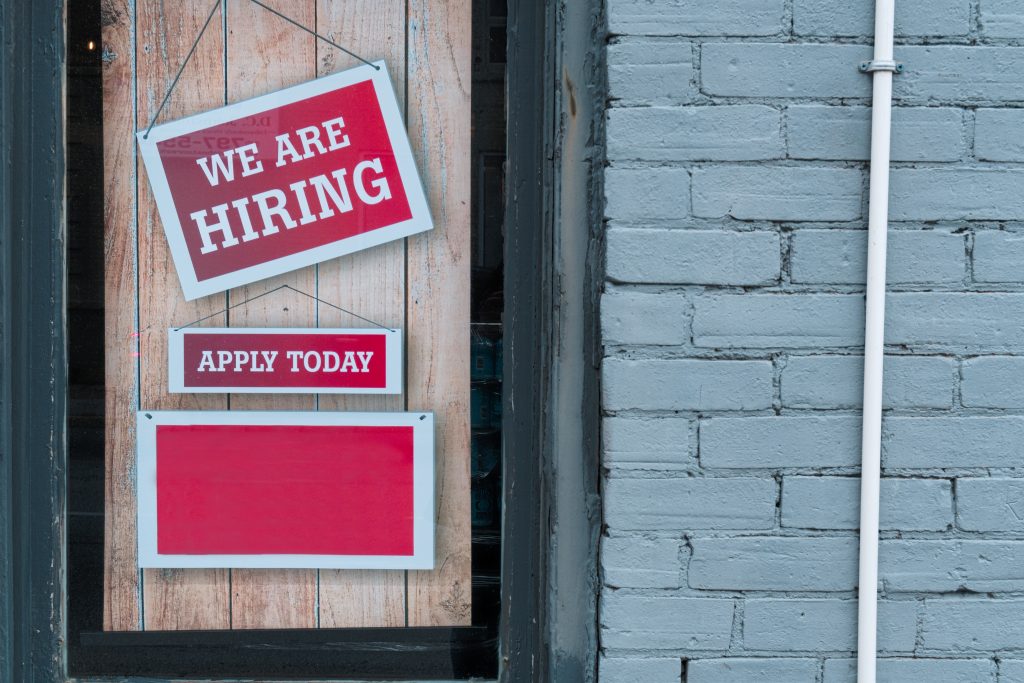Whatever problems the UK might be facing right now, high unemployment isn’t one of them. Historically speaking, 2022 is a pretty good time to be a UK jobseeker.
After the Covid-related blip, unemployment rates are back down to 4.1% (November 2021), and our employment rates compare favourably with average rates in G7, EU and OECD countries. Nor is this a flash in the pan. Unemployment rates haven’t been above 5.1% since February 2016 and hit a 50-year low in September 2019. No one can say how long this will last, but for now the employment good times are rolling.
But if you work in recruitment, you might just be cheering this buoyant job market through ever-so-slightly gritted teeth. You may be wistfully remembering when gaining and retaining top people wasn’t so gosh-darned difficult. Increasingly, candidates are calling the shots, and your organisation may well be facing stiff competition in attracting the talent you want.
We don’t want to overstate the case: the majority of candidates aren’t precious prima donnas. And of course, the recruitment situation varies with sector and geography. Nevertheless, the last few years have seen a sea-change in recruiter-candidate dynamics that’s impossible to ignore.
What do candidates really want?
To stand any chance of attracting the best talent, recruiters obviously need to know what candidates are looking for. That’s easier said than done for busy managers who can’t spend all day monitoring cultural trends.
Large-scale employee and jobseeker surveys reveal just how much employee expectations have moved in the last few years. Anyone who thinks that a decent salary and job security still top the employee wish lists had best hang onto their hats — the world is changing, fast.
Let’s start with a survey of nearly 5,000 workers by human capital specialists Deloitte, Designing Work for Well-Being, Deloitte Report 2021. What did employees want to see from their employers in 2021? Workers told us that the top three objectives of work transformation should be improving quality, increasing innovation, and improving worker wellbeing.
Wellbeing also featured prominently in Workday’s 2021 Report on Employee Expectations. Drawing on their database of 150 million employee survey responses, and 30 million employee comments, they highlighted three top trends in employee expectations:
- Diversity, equity & inclusion
- Health and wellbeing
- Flexible working
Health and wellbeing – it’s not just Covid
Of course, the title health and wellbeing covers a lot of ground, so you might think that employees were just voicing their concerns about catching Covid at work. Nope, says Workday:
Physical health might seem like one of the main concerns when dealing with a highly contagious virus, but feedback on mental and financial health dominate the conversation, comprising over 75% of employee wellbeing comments during 2020.
In addition, Deloitte’s research points out that wellbeing was already a top-ranked trend even before the pandemic hit us.
It seems that with or without the pandemic, wellbeing at work is now a top concern for employees.
Are organisations getting the wellbeing message?
The overall message candidates are sending couldn’t be clearer: with or without the pandemic, wellbeing is among their very highest priorities for employer expectations. In fact, Millennials and Gen-Z (now half of the workforce) ranked it as their most important expectation. There’s little reason to expect much difference in the UK.
These expectations directly affect the organisations to which candidates apply. A recent survey found 88% of UK professionals considered what mental health policies potential employers have in place when looking into a new role.
So, message sent, but how much senior executives are listening is a different issue. Deloitte highlighted that although improving wellbeing ranked in their top three priorities, senior executives had it down in eighth place. Most HR managers have received no extra budget for health and wellbeing, even over the pandemic. It’s far from certain whether many executives understand just how seriously their workforce, and prospective workforce, treats wellbeing.
Fast and easy does it: a way into wellbeing
Many organisations looking to develop, and show, an increased commitment to wellbeing aren’t sure where to start. They need wellbeing solutions that are science-based, effective, but don’t take forever to manage. They want ways of monitoring wellbeing and making that part of the work conversation. They’d also like to know how wellbeing is impacting performance.
Traditionally, it’s been hard to find solutions that meet all of those criteria without first committing huge amounts of time and considerable resources. And that’s why the team at ART Health has been developing new services designed to help busy HR Managers ease into wellbeing monitoring.
Our new wellbeing tools allow managers to investigate wellbeing across multiple teams. Using our proprietary Omics app, managers can securely gather anonymised wellbeing and performance data from their workforce, giving them evidence-based insight right across the organisation. This can be particularly useful where teams are distributed across several offices. We’ve also worked hard to make set-up as simple as possible.
To find out more about a fast and easy way into wellbeing monitoring, please contact our team. Your next generation of staff will thank you for it!
ART Health Solutions is a wellbeing consultancy, providing effective, science-based wellbeing recommendations. Our bespoke solutions are generated by gathering data directly from the organisation and its employees. Having proven our methods working with large, multinational corporations, we’re excited to bring our expertise to small and medium-size UK businesses.
To learn how we can benefit your company, please contact our friendly team.

